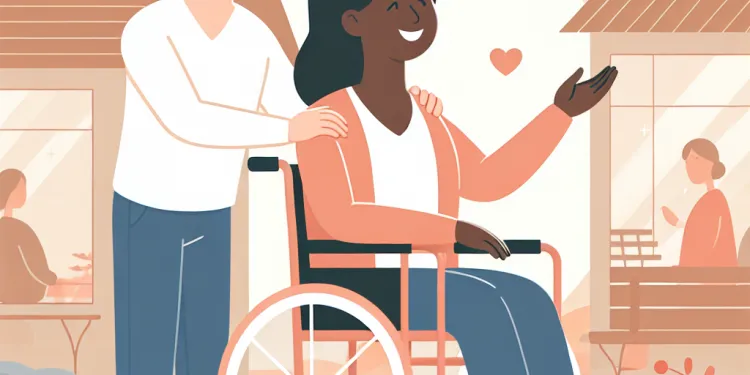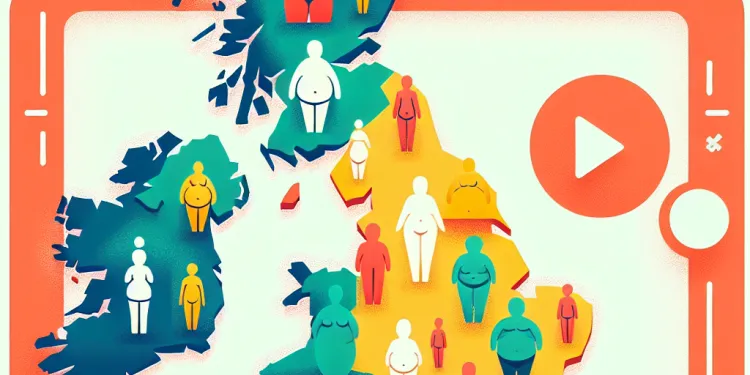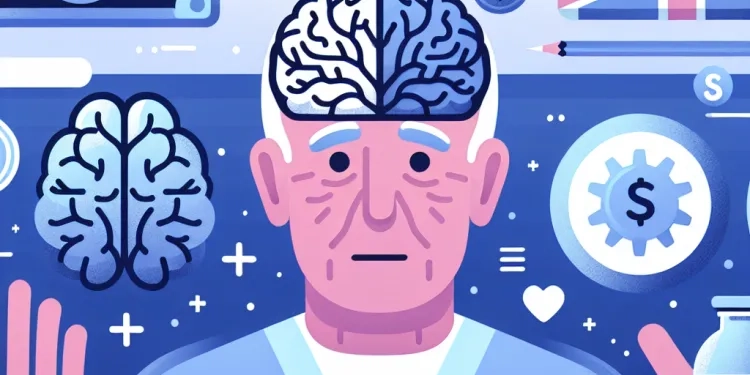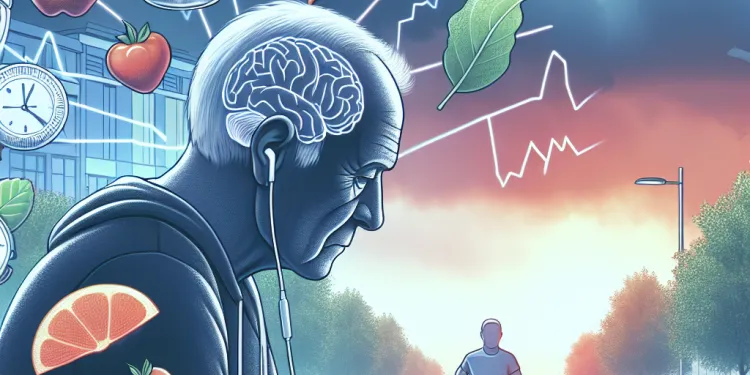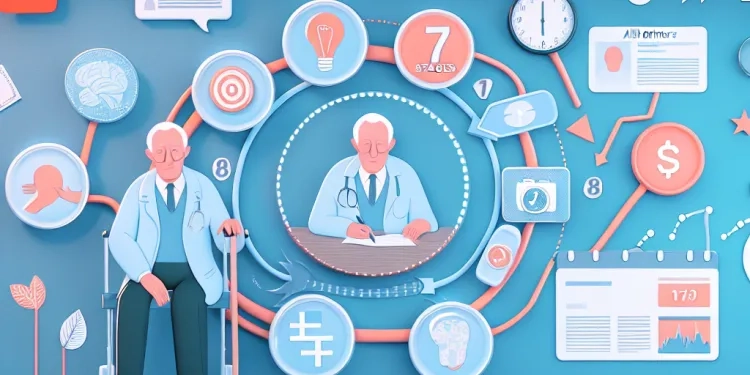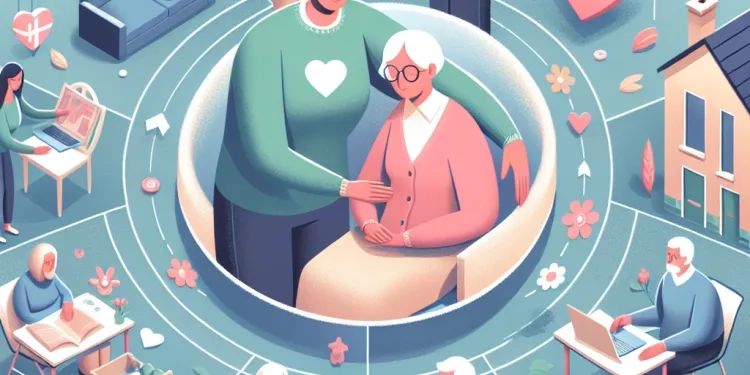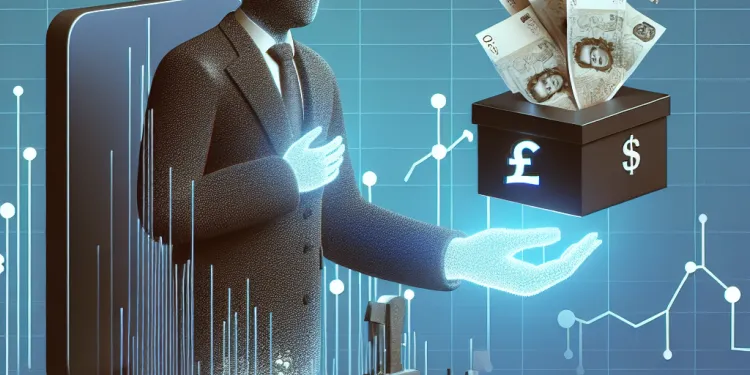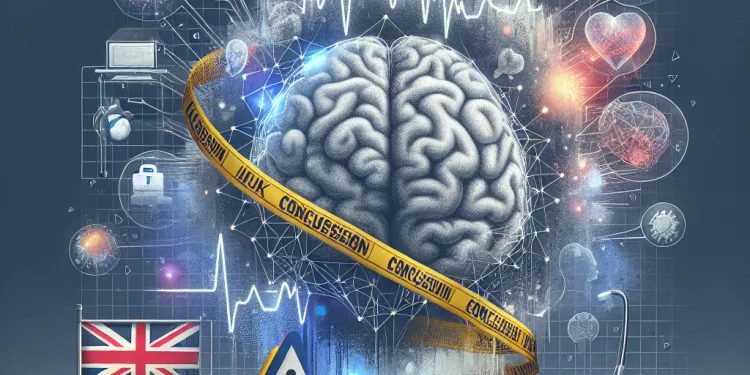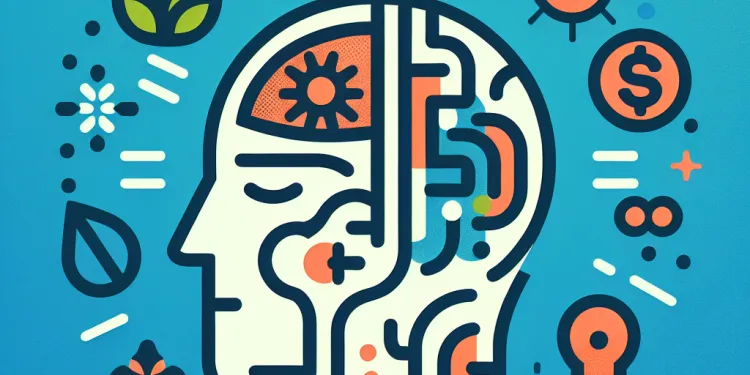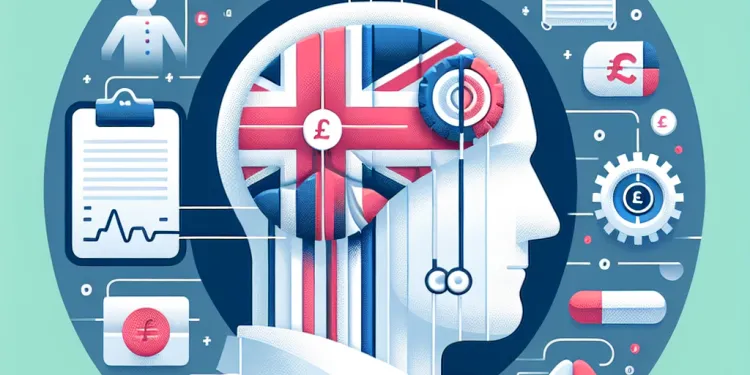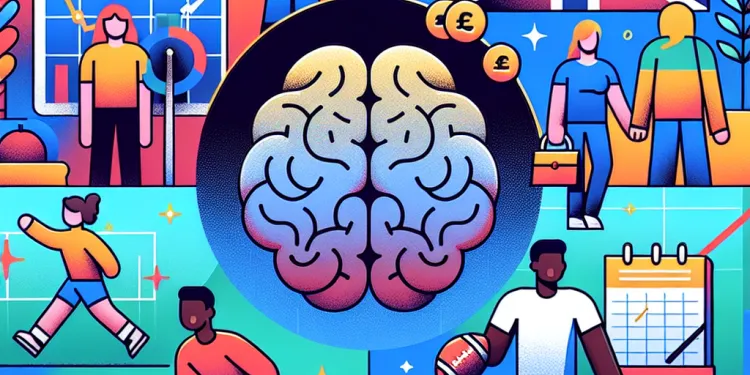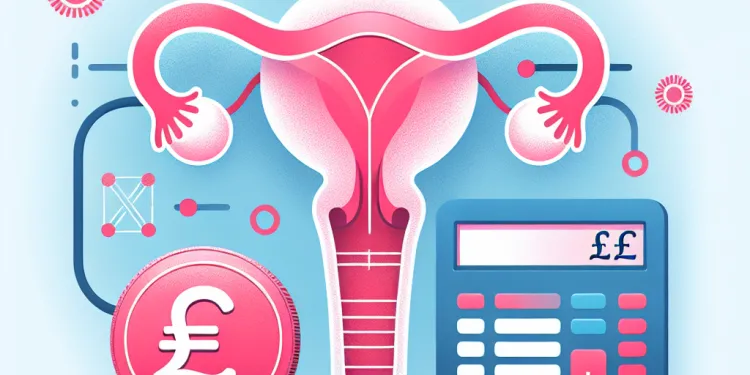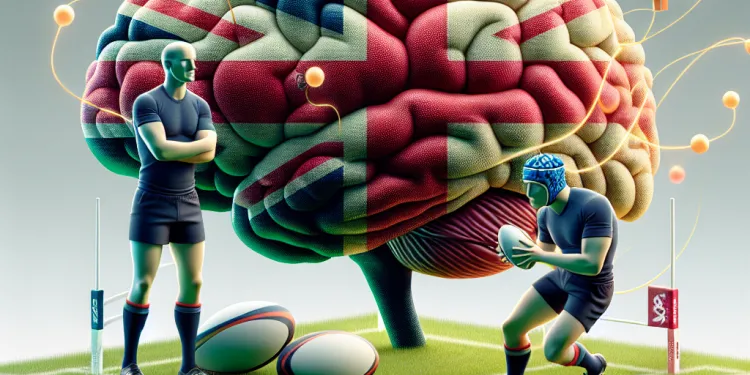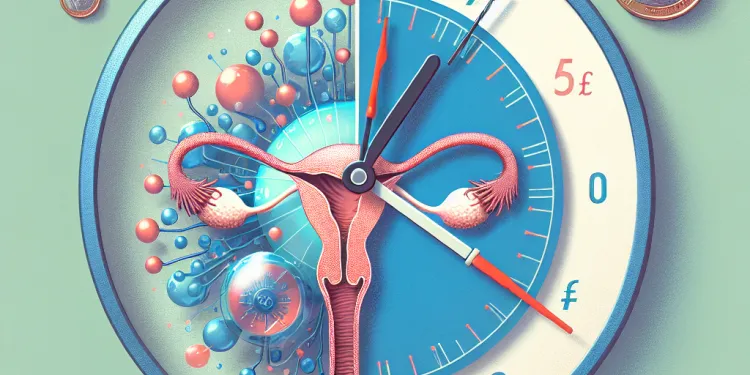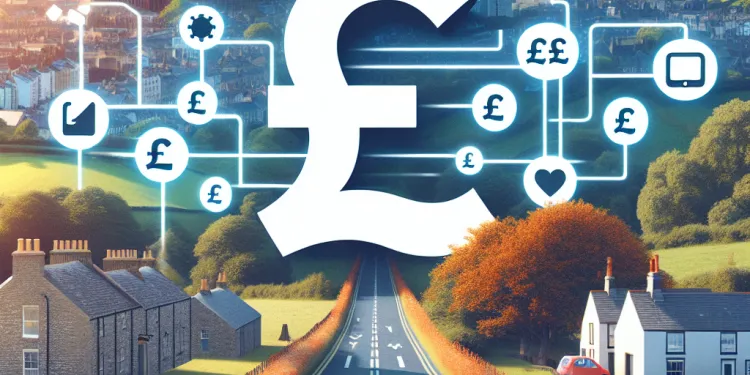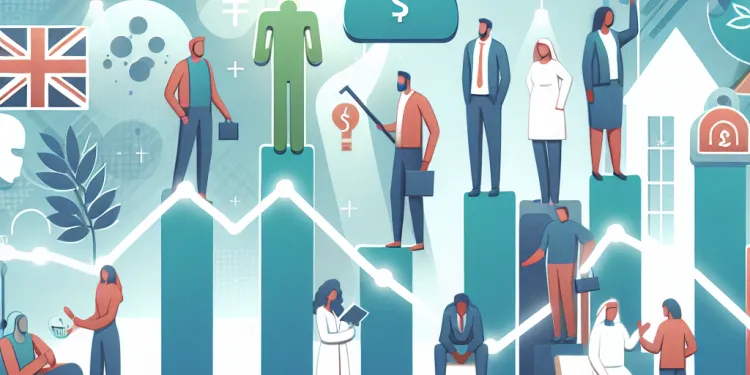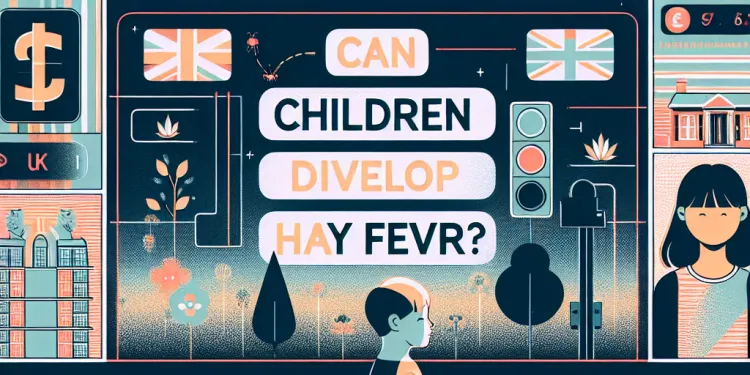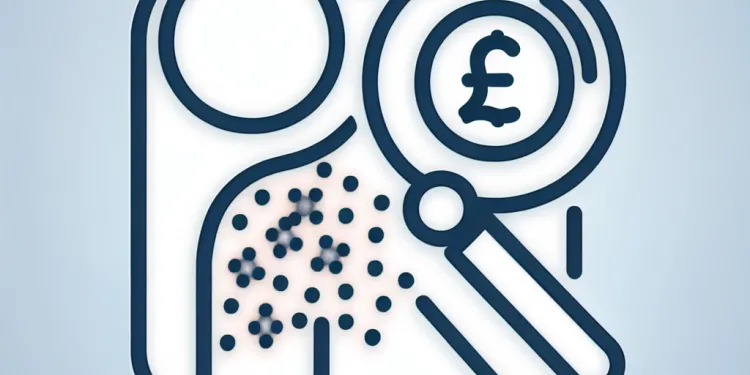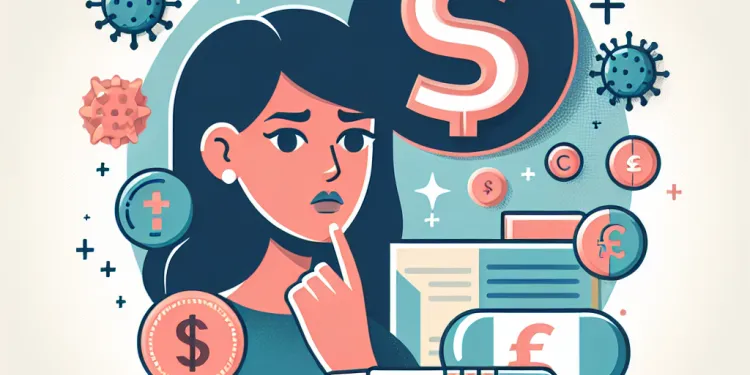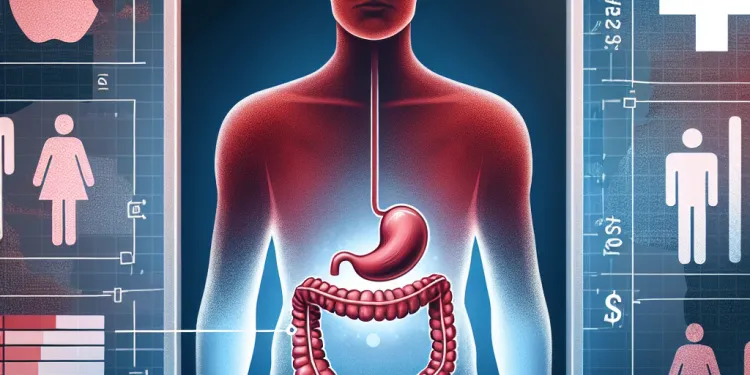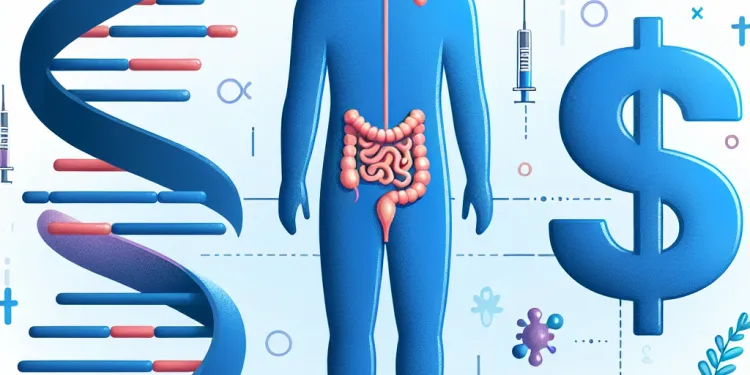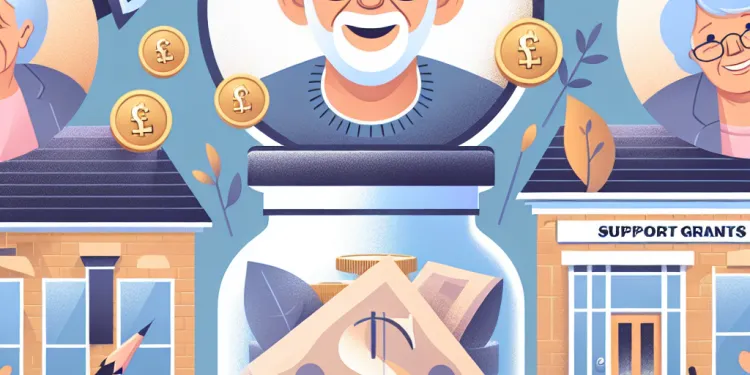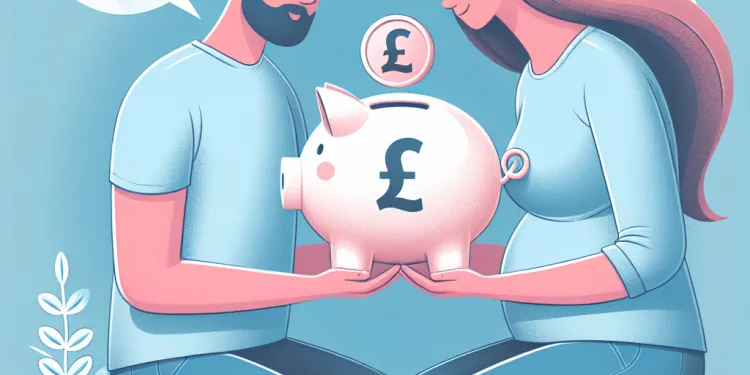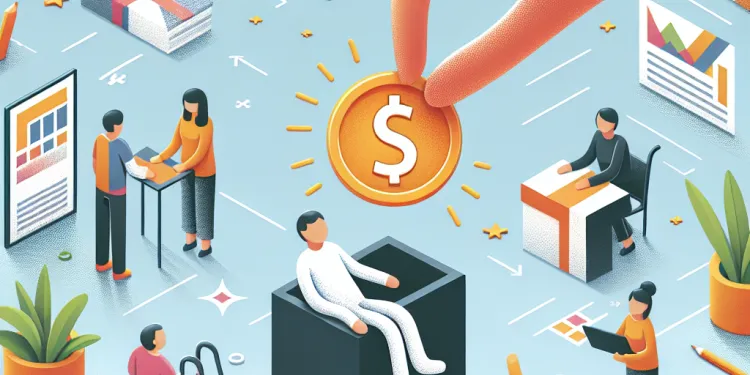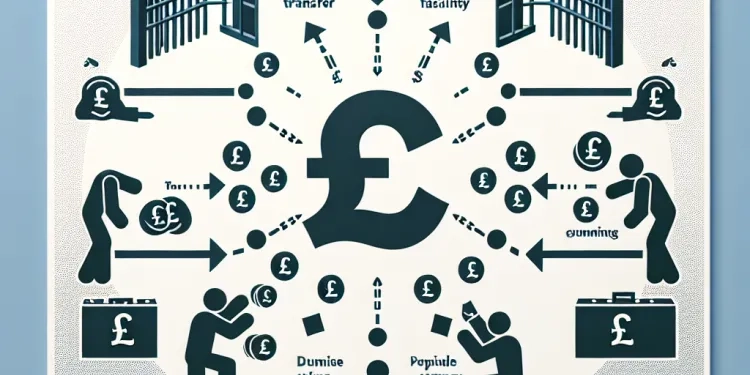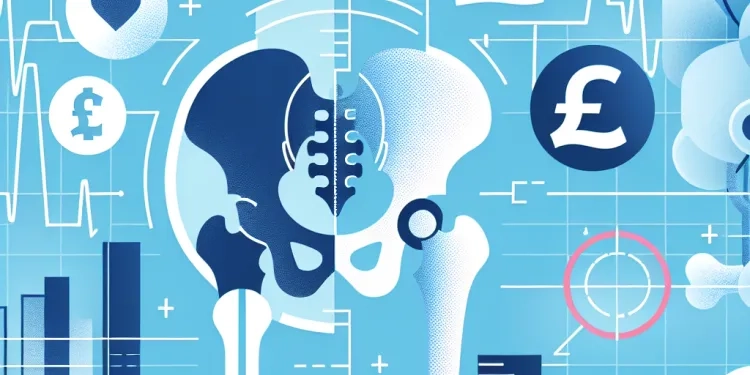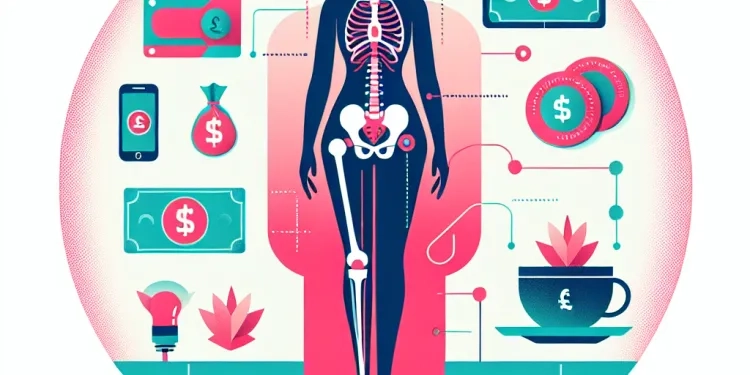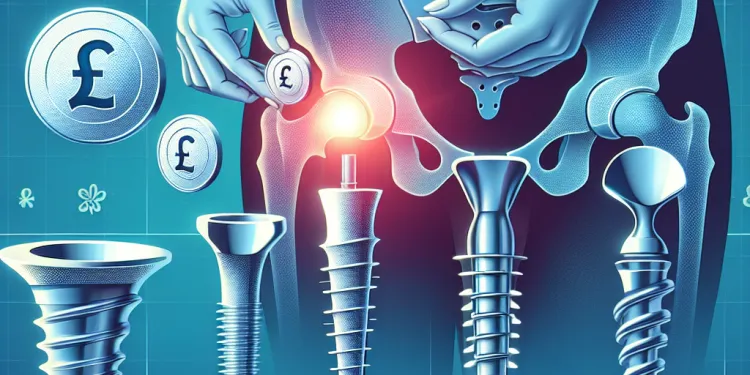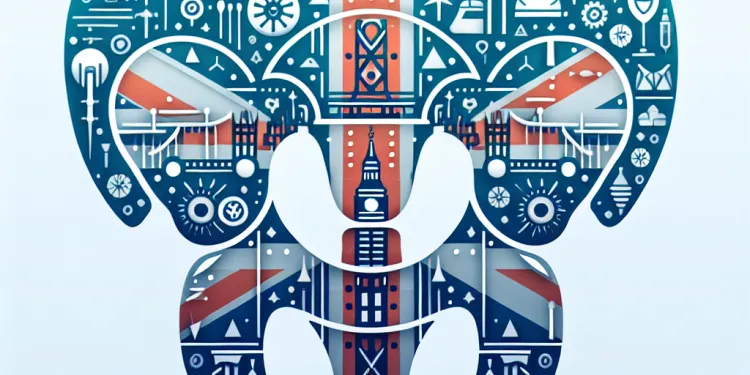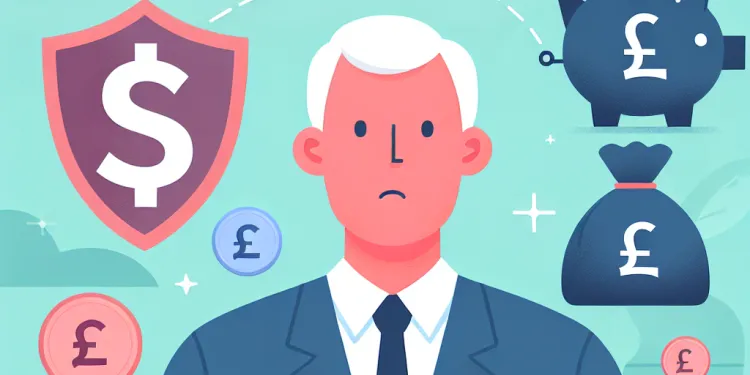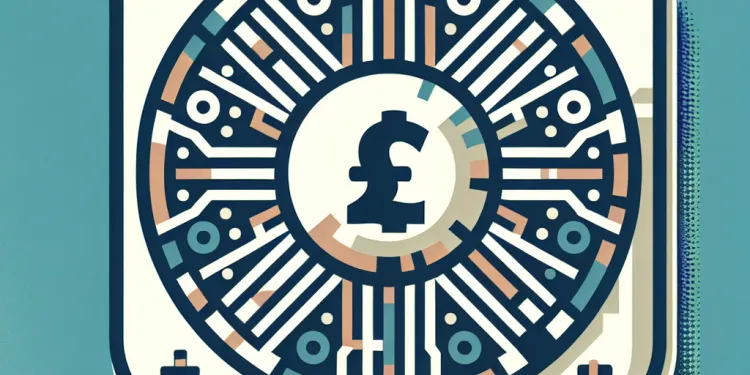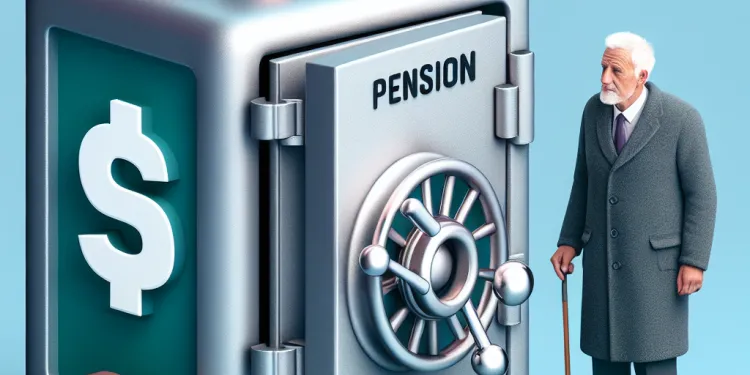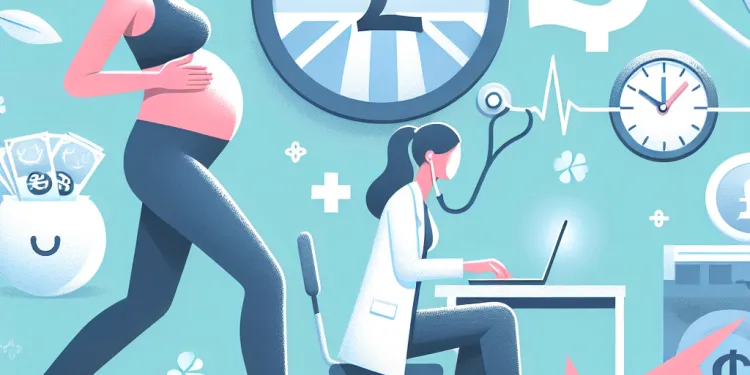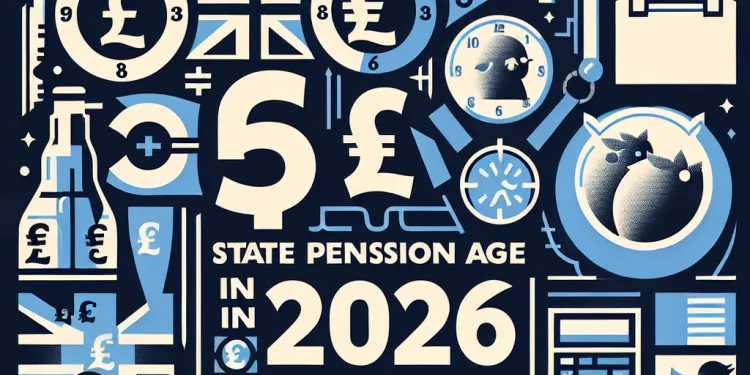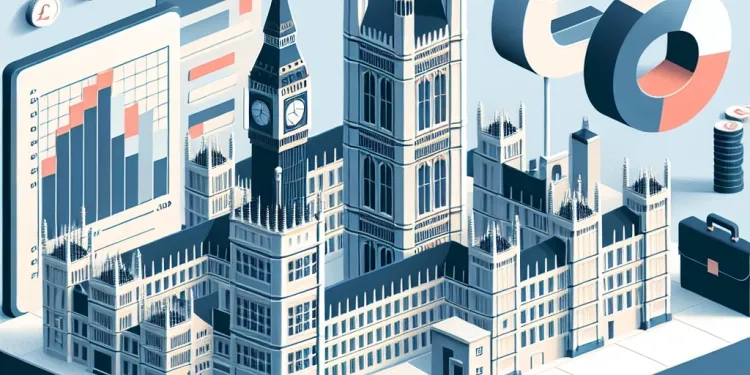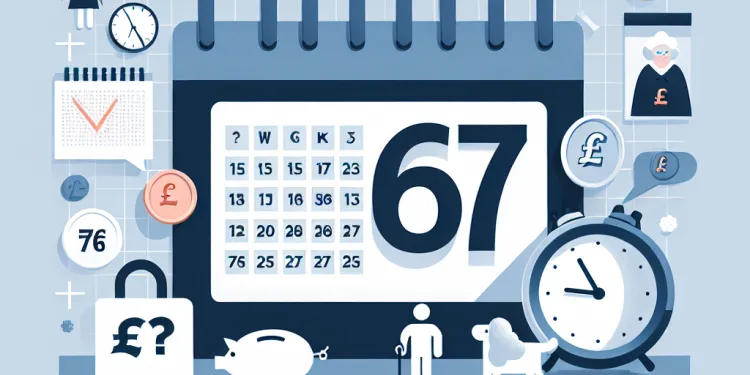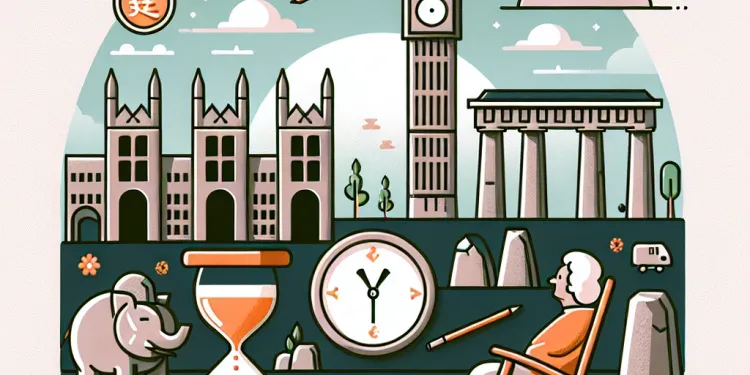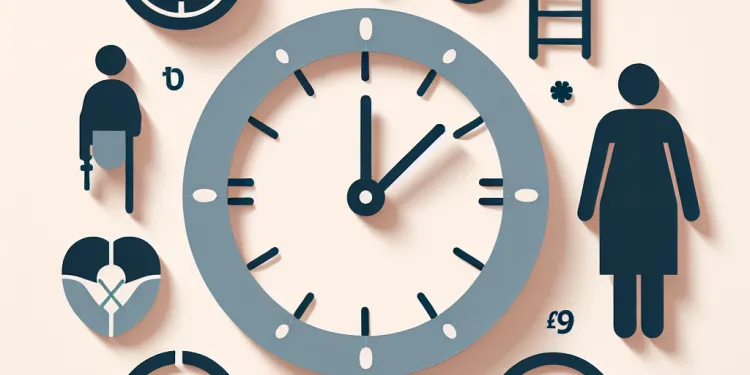
Find A Professional
Introduction
The state pension age is a crucial element of the United Kingdom's pension system, impacting when individuals can claim their state pension benefits. Various demographic factors influence adjustments to the state pension age, ensuring the sustainability and fairness of the pension system. These include life expectancy, the size of the workforce, and the dependency ratio.
Life Expectancy
One of the primary demographic factors affecting changes to the state pension age is life expectancy. As people live longer, the duration for which they draw a state pension increases. To accommodate this, governments may raise the pension age, ensuring that the period people receive benefits aligns more closely with the resources available. In the UK, life expectancy has risen significantly over the past century, prompting the government to consider extending the working life.
Size of the Workforce
The size and composition of the workforce significantly influence pension age adjustments. A larger working-age population can support a relatively smaller retired population, making it easier to maintain a lower pension age. Conversely, if the workforce shrinks relative to the number of retirees—a trend seen with lower birth rates—governments may need to increase the pension age to balance the burden on the working population. This demographic shift can create financial pressures on pension systems, necessitating changes to the state pension age.
Dependency Ratio
The dependency ratio is another crucial factor that influences changes to the state pension age. This ratio measures the number of dependents, which include children and retirees, relative to the working-age population. A rising dependency ratio indicates a larger share of the population is not in the labor force, putting pressure on economic resources and social services. By increasing the state pension age, governments aim to mitigate these pressures by ensuring more people contribute to the economy for longer, supporting public finances and the pension system.
Conclusion
In summary, several demographic factors play a pivotal role in determining adjustments to the state pension age in the UK. As life expectancy increases, and with shifts in workforce size and the dependency ratio, there is a need to reevaluate the pension system to maintain its sustainability. Policymakers must carefully consider these demographic trends to ensure that changes to the state pension age are equitable and support the financial health of the nation’s pensions system.
Introduction
The state pension age is the age when people in the UK can start getting their pension money from the government. It's important because it decides when you can stop working and get this money. The government looks at a few important things to decide how old you need to be to get a pension. These things include how long people are living now, how many people are working, and how many people need taking care of.
Life Expectancy
Life expectancy means how long people are expected to live. People are living longer now than before. This means they will get their pension money for more years. Because of this, the government might change the age when you can start getting your pension. They want to make sure there is enough money for everyone. In the UK, people are living much longer than they used to, so the government is thinking about making people work a bit longer before they can get a pension.
Size of the Workforce
The workforce means all the people who are working. If there are a lot of people working, it's easier for the government to give pensions to older people. But if fewer people are working because of fewer babies being born, the government might say people have to work longer before getting a pension. This ensures there is enough money to pay for pensions.
Dependency Ratio
The dependency ratio is a number that shows how many people, like kids and older people, depend on workers for support. If there are more people who need help than those who are working, it can make it hard for the government to have enough money. If too many people need help, the government might raise the pension age. This allows more people to keep working and supporting the economy for a longer time.
Conclusion
In short, the age when people can get a state pension in the UK depends on a few things like how long people live and how many people are working. As these things change, the government needs to think about changing the age to keep things fair and make sure there is enough money for everyone. It's important to get this right so the pension system stays healthy and fair for everyone.
Frequently Asked Questions
How does life expectancy affect the state pension age?
Life expectancy is a key demographic factor that influences the state pension age. As life expectancy increases, the government may raise the pension age to ensure that the pension system remains sustainable.
Why is the aging population important for state pension age changes?
An aging population means a higher proportion of retirees, which can strain pension systems. To manage this, governments may increase the state pension age to balance the working and retired population.
What role does birth rate play in determining state pension age?
A declining birth rate can lead to a smaller future workforce, which affects the sustainability of the pension system. Governments may raise the pension age to offset the impact of a shrinking workforce.
How do economic factors interact with demographic factors on pension age?
Economic factors, such as employment rates and productivity, interact with demographic factors like life expectancy to influence state pension age decisions.
Does immigration influence changes to the state pension age?
Yes, immigration can introduce younger workers into the population, potentially easing the burden on the pension system and affecting decisions on pension age.
How does the ratio of workers to retirees affect pension age policy?
The worker-to-retiree ratio is critical; a lower ratio might necessitate a higher pension age to ensure financial sustainability of pension systems.
Do health trends play a role in adjusting the state pension age?
Health trends, which can affect life expectancy and the ability to work longer, are considered when determining changes to the pension age.
Why might governments raise the state pension age despite demographic challenges?
Raising the pension age can help manage budget constraints and ensure that pension systems remain viable in the face of demographic pressures.
How does gender demographic influence changes in state pension age?
Historically, different pension ages for men and women have been equalized in many countries to reflect similar life expectancies and workforce participation.
What is the impact of increased longevity on state pension age decisions?
Increased longevity generally leads to longer retirement periods, prompting governments to consider raising the pension age to maintain the balance between time spent working and in retirement.
How does generational size affect state pension age?
Large generational sizes, like the baby boomers, can affect pension systems significantly, possibly leading to increases in pension age as these cohorts retire.
How have historical demographic trends influenced current state pension age?
Historical trends such as post-war baby booms and subsequent declines in birth rates have shaped current pension age policies as they impact the size of generations.
Why are future demographic projections important for pension age decisions?
Future demographic projections help policymakers anticipate changes in life expectancy, birth rates, and population growth, which are essential for long-term pension planning.
What effect do social trends have on the state pension age?
Social trends, including changing attitudes toward work, retirement, and family, influence demographic factors and can affect policy decisions regarding the pension age.
Does urbanization influence the state pension age?
Urbanization can impact employment patterns and economic productivity, indirectly affecting decisions on state pension age as governments respond to these changes.
How do advances in healthcare affect changes in the state pension age?
Advances in healthcare contribute to increased life expectancy and better quality of life, potentially leading to adjustments in the pension age to account for longer, healthier lifespans.
Why might changes in labor force participation affect the state pension age?
If the labor force participation rate changes, particularly among older workers, it may drive policy adjustments to the pension age to accommodate or encourage longer work life.
How do demographic shifts in rural versus urban areas impact pension age?
Demographic shifts between rural and urban areas can alter workforce distribution and economic conditions, which in turn may influence pension age policies.
What is the relationship between educational attainment and state pension age?
Higher educational attainment can lead to later entry into the workforce and longer working years, factors that may be considered in pension age policy decisions.
How do pension age policies vary across countries with different demographics?
Countries with different demographic profiles, such as varying birth rates or life expectancies, may adopt different pension age policies to best suit their unique challenges.
How does how long people live change when they get their state pension?
Life expectancy means how long people live.
State pension is money from the government for people who stop working because they are older.
If people live longer, they might get their pension later.
Here are some tools to help:
- Read aloud: Use a tool that reads the text to you.
- Break it down: Look at one sentence at a time.
How long people live is important for how old you need to be to get your pension. If people live longer, the government might make the pension age higher. This is to make sure there's enough money for everyone.
Why do older people matter for changing pension age?
There are more old people now. So, the rules for getting a pension may need to change. This is important so everyone can get help when they stop working.
Here are some ways to understand this better:
- Use pictures or videos to see how pensions work.
- Ask a friend or family member to explain it with you.
- Use simple charts or graphs to show numbers of older people.
As people get older, more of them stop working and retire. This can make it hard for the government to pay everyone a pension. A pension is money people get when they stop working. To help with this, the government might make the age for getting a pension higher. This means people need to be older before they get a pension, which helps balance how many people are working and how many have retired.
How does the number of babies born affect when people can get the state pension?
If fewer babies are born, there will be fewer people to work when they grow up. This can make it hard to pay for pensions for older people. The government might make people work until they are older to help fix this problem.
How do money and people numbers change pension age?
This question asks how things like money (economic factors) and the number of people (demographic factors) affect when people can get their pension.
Some tips to help understand:
- Look at pictures or charts that show money and people numbers.
- Ask someone to explain words you don't know.
- Use simple examples to see how things work.
- Take notes to remember important points.
Money and jobs, like how many people have work and how much work they do, are important for deciding when people can start getting a state pension. How long people usually live also matters in making this decision.
Does immigration change the age when people get the state pension?
This means, does having more people from other countries living here make the age when you can get your state pension different?
To understand this better, you can:
- Ask someone to help you read.
- Use websites or apps that read text out loud.
- Look for videos or pictures that explain it.
Yes, when people move to a new country, they can bring in younger workers. This can help with pensions and might change when people can start getting a pension.
How does the number of workers compared to retirees change the rules about when people can get a pension?
The number of people working compared to those retired is very important. If there are fewer workers and more retirees, people may need to work longer before getting a pension. This helps keep the pension system strong and able to pay everyone.
Here are some helpful tips:
- Use simple words to understand better.
- Read out loud or listen to someone reading.
- Write down key points to remember them.
Do health trends change when people get their state pension?
Health trends mean how people's health is changing over time.
State pension is money from the government for older people.
This question asks if changes in health affect when people start getting their pension.
If you find reading hard, you can:
- Ask someone to read with you.
- Use a dictionary to help with difficult words.
- Listen to audio versions if available.
Changes to when people get their pension depend on how healthy people are and how long they can keep working. This means looking at how long people live and how healthy they are.
Why Do Governments Want to Raise the Age for Getting a State Pension?
Sometimes, the government wants people to wait longer before getting their state pension. Here are some reasons why:
- People Are Living Longer: Many people are living more years now than before. This means the government needs more money to pay pensions for a longer time.
- More Older People: There are more older people now than young people. This means more people need pensions, and the government might not have enough money to pay everyone.
- Less Money Coming In: Fewer young people working means the government gets less money from taxes to pay pensions.
To help understand this better, it's good to talk to someone who knows about pensions, like a family member, teacher, or community worker. You can also use simple tools like counting or drawing to see how money works over time.
Making the age higher for getting a pension can help save money for the country. It makes sure people can keep getting pensions even as the number of older people grows.
How does being a man or a woman change when people get their state pension?
This question asks how being a man or a woman affects the age when you start getting money from the government when you stop working, called a pension.
Here is a tip to help understand: Think about how rules can be different for different people, like boys and girls, and how this can change when they get certain things, like pocket money or a pension.
In the past, men and women had different ages when they could retire and get their pension. Now, many countries have changed this so men and women retire at the same age. This is because people are living longer, and both men and women work similar jobs.
How does living longer affect when people can get the state pension?
People are living longer now. This means they spend more time in retirement. Because of this, governments are thinking about making people work for more years before they can retire. This would help keep work and retirement time more balanced.
How does the number of people in each generation change state pension age?
The number of people in a big group, like older people or younger people, can change how old you have to be to get a state pension. A state pension is money the government gives you when you are too old to work.
When there are more older people, the government might make the age higher before you can get your pension. This means you have to wait longer before you get the money.
Here are some ways to understand better:
- Use pictures or charts to see how many people are in each age group.
- Ask someone to explain using simple words or examples.
Big groups of people, like the baby boomers, can change how pensions work. When lots of these people retire, it might mean people have to wait longer to get their pensions.
How have changes in population over time affected the age people can get a state pension now?
Over many years, the number of young and old people has changed. This is called a demographic trend. These changes have made a difference in the age when people can get their state pension.
Tools like simple charts, videos, or talking to someone can help make this topic easier to understand.
Big changes in history, like lots of babies being born after wars, have made rules for when people can start getting their pensions. This is because the size of different age groups changes.
Why do we need to know about future population changes to decide pension age?
Understanding how the number of people is going to change in the future is important because it helps us make good decisions about when people can start getting their pensions.
As people get older, we need to think about how many people will need pensions and how many people will be working to pay for those pensions.
Using tools like simple graphs or pictures can help us see these changes clearly. Talking to others and asking questions can also help us understand better.
Looking at future numbers of people helps leaders plan. They can see how long people might live, how many babies might be born, and how fast the number of people might grow. This is important for planning pensions for when people stop working.
How do changes in what people like affect the age for getting a state pension?
Changes in what people like can change when you can get a state pension. Support like apps that read text aloud or pictures to explain can help understand this better.
How people feel about work, retirement, and family can change over time. These changes can affect things like how old you need to be to get a pension.
Does living in cities change when people can get a pension?
Cities getting bigger can change jobs and how much money people make. This can also change when people start getting state pensions because the government looks at these changes.
How does better healthcare change when people get their pensions?
Better healthcare means people can live longer and healthier lives.
When people live longer, they might work for more years before getting their pension.
This can mean the age for getting a pension might change.
If you have trouble understanding or reading, you can ask someone to help you.
Using tools like pictures or videos can also help you understand better.
Healthcare is getting better. This means people live longer and feel better. Because of this, the age when people get a pension might change. People can live longer and have healthier lives now.
Why could changes in working affect the age to get a state pension?
If more people start working or stop working, it can change the age when people can get the state pension. This is because the government looks at how many people are working to decide when you can get your pension.
Helpful tools to understand:
- Use pictures or charts to see how many people are working.
- Ask someone you trust to explain it to you.
- Break down big words into smaller parts to help you understand.
If more older people start working or stop working, the rules about when people can get pensions might change. This could mean changing the age when people get their pension money to help them work longer or retire earlier.
If you find reading hard, you can try using audiobooks or text-to-speech tools to help understand the text better.
How do changes in where people live affect the age to get a pension?
People are moving. Some live in the countryside. Some live in cities. This is what we call "demographic shifts."
These changes affect when people can get money from pensions. Pensions are money you get when you stop working because you are older.
Here are some tips to understand better:
- Use simple words and short sentences.
- Ask someone to explain tricky parts.
- Try tools that read text out loud.
These can help you understand what is happening with pensions.
Changes in where people live, like moving from the countryside to the city or vice versa, can change where people work and how the economy works. This can also change the rules about when people can start getting their pensions or retirement money.
To help understand this, you could use pictures, charts, or talk to someone you trust. Writing ideas down or using voice recording tools can also help.
How does going to school affect when you can get a state pension?
Going to school for a longer time can mean people start working later. They might also work for more years. These are important things to think about when deciding when people should be able to retire and use their pensions.
How do rules about pension age change in different countries?
Countries have different rules about when people can get a pension, which is money you get after you stop working. These rules change because of who lives in each country and how many older or younger people there are.
To understand these rules, you can look at easy guides or use picture charts. Asking someone to explain it or watching a video might help too.
Different countries have people of different ages and numbers. This means how many babies are born and how long people live can vary. Because of this, each country might decide on different ages for people to start getting their pension money. They do this to solve their own special problems.
Useful Links
More Videos of Interestdiagnosis
- Ergsy carfully checks the information in the videos we provide here.
- Videos shown by Youtube after a video has completed, have NOT been reviewed by ERGSY.
- To view, click the arrow in centre of video.
- Most of the videos you find here will have subtitles and/or closed captions available.
- You may need to turn these on, and choose your preferred language.
- Go to the video you'd like to watch.
- If closed captions (CC) are available, settings will be visible on the bottom right of the video player.
- To turn on Captions, click settings .
- To turn off Captions, click settings again.

























































